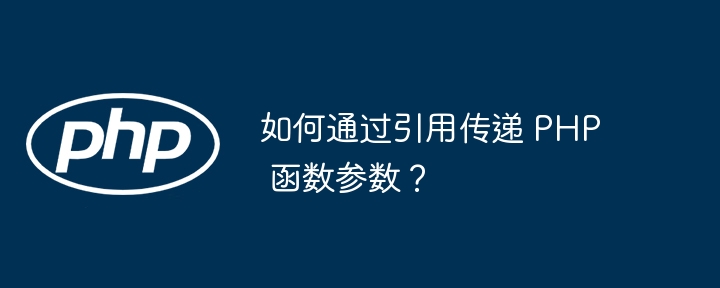
PHP function parameters are passed by value by default. Variables in the function can be modified by using the & symbol to pass references. The advantages include improving efficiency and allowing functions to modify variables in unexpected ways. The disadvantage is to prevent unexpected side effects and dependent variables from remaining unchanged. It becomes possible.

Passing PHP function parameters by reference
In PHP, function parameters are passed by value by default, which means that the parameters are The modification does not affect the value of the corresponding variable in the function that calls it.
Passing a reference
In order to modify a variable in a function, we need to pass a reference, which means that the function will point to the memory address of the variable in the function that called it. We can use&symbols to pass references.
Syntax:
function myFunction(&$param) { // 修改 $param 会影响调用函数中的变量 }
Practical case:
The following example demonstrates how to pass parameters by reference:
Code:
function incrementByReference(&$num) { $num++; } $number = 10; incrementByReference($number); echo $number; // 输出 11
In this example, theincrementByReference()function receives the$numparameter by reference, and the Its modification will affect the$numbervariable in the main program.
Advantages:
Disadvantages:
The above is the detailed content of How to pass PHP function parameters by reference?. For more information, please follow other related articles on the PHP Chinese website!